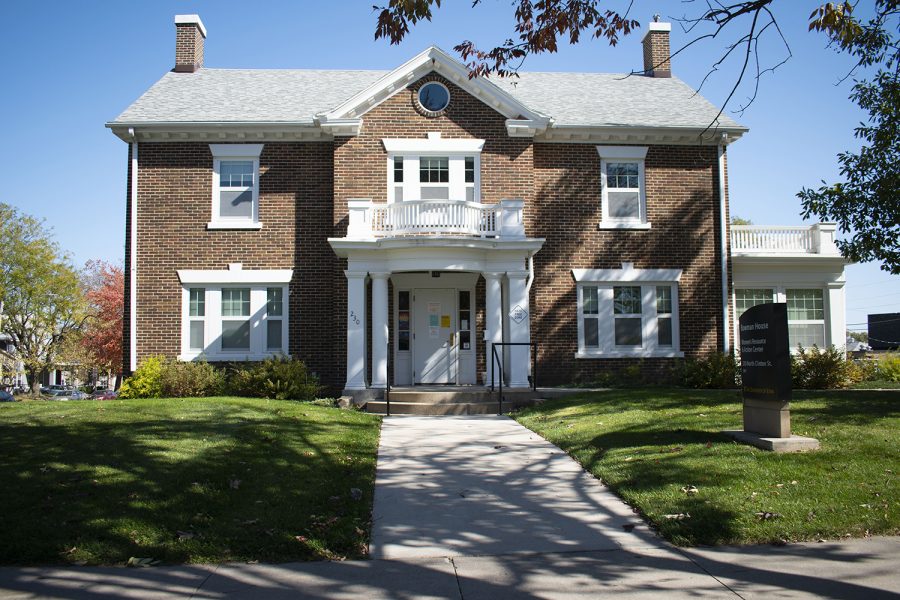UI Women’s Resource and Action Center continues through COVID-19
For the health and safety of students and staff on campus, The University of Iowa’s Women’s Resource and Action Center has decided to move completely virtual for the current semester.
The Women’s Resource and Action Center is seen Tuesday, October 6, 2020.
October 7, 2020
Known for its education and advocacy work on campus, the University of Iowa’s Women’s Resource and Action Center is empowering individuals and fighting oppression this year via Instagram live and Zoom training sessions.
This year, WRAC — a center with a 46-year history on campus — has moved completely virtual, said Martha Pierce, the center’s assistant director, and violence prevention program coordinator.
“We are providing all of the same services that we have always provided,” Pierce said. “We can still do our really important equity and social justice work in a way that also keeps in mind the health and safety of our community.”
She also said that depending on the service, Zoom, phone calls, and social media have been the most common way WRAC has contacted students across campus.
“We have been even more active on social media than we usually are, particularly on Instagram,” Pierce said.
The WRAC team has offered live video chats on their Instagram almost every week where anyone can join in.
Regarding the number of people interacting with WRAC due to COVID-19, Pierce said there had not been a significant change in the number of people accessing their counseling and advocacy services, though it depends on the service.
“We have actually seen as much or more demand for counseling and mental health services as we ever do,” she said. “I think some of the concerns that folks are reaching out to us about have changed.”
She believes this is because people are interacting more virtually, but the need for advocacy has not diminished.
Freshman volunteer Lydia Kolness said she found the WRAC a fantastic place to promote campus advocacy.
As a social work interest major, Kolness was very interested in finding volunteer opportunities on campus.
“They have so many different great programs, and I think that is a really great cause to be working for,” she said.
Kolness also said that the volunteers meet on Zoom every Tuesday for training and more significant group work.
“We have had training on how to create effective social media advertisements, and we have also had bystander training,” she said.
Although the volunteers do not directly work with students, they help create different campaigns that the WRAC promotes.
Another role within the WRAC that works with the general student body is a peer educator.
UI junior Maggy Hovden is a certified peer educator for WRAC and has been for almost two years.
She was always really interested in the work that the WRAC does. She loves how focused they are and how they are avid promoters of that.
“They seek structural change throughout our university and Iowa City community,” Hovden said.
A peer educator’s role is to facilitate violence prevention workshops to various student groups on campus, such as fraternities and sororities. She also mentioned how fraternities used to be required to have a violence prevention workshop every semester, but she believes that is changing.
“The workshops are very interactive, and we have a wide range of topics including bystander intervention, healthy relationships, enthusiastic consent, dismantling rape culture, and the list goes on,” Hovden said.






